RIYADH: Like much of the world, 2022 in the Middle East and North Africa felt like the year when things finally began returning to normal after the lockdowns, closures and isolation of the COVID-19 pandemic.
However, the residual economic effects, coupled with rising inflation in the wake of the outbreak of war in Ukraine, quickly dashed hopes of a strong post-pandemic recovery, bringing many economies to the brink of recession.
These economic challenges have been keenly felt across much of MENA region as the price of food and fuel skyrocketed over the course of the year — in many cases exacerbating existing domestic problems.
There were, however, moments of triumph and excitement for the region in 2022, with major sporting events, diplomatic summits and cultural extravaganzas lighting a path toward a more sustainable and potentially more peaceful 2023.
Houthis attack UAE
The year began on a low note for the Gulf with a dangerous escalation in the long-running war in Yemen when the Iran-backed Houthi militia launched fresh attacks against regional states. The UAE, which announced the withdrawal of its troops from Yemen in 2019 but remains part of the Coalition to Restore Legitimacy in Yemen, was hit by a Houthi drone and missile assault on January 17. The attack, which killed three oil workers in the capital Abu Dhabi, was the first deadly assault on the UAE claimed by the Houthis and the first in a series of attacks.
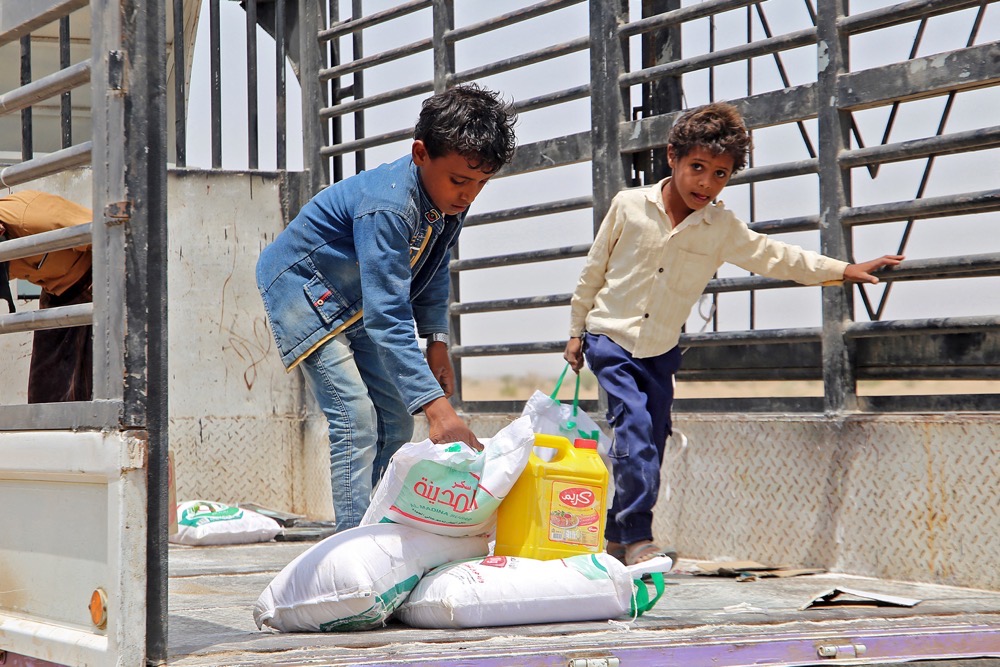
Food insecurity
When Russia launched what it called a “special military operation” in Ukraine on February 24, the effects were quickly felt around the globe. In the MENA countries, the most obvious effect was the sudden leap in the price of basic foodstuffs, as the blockade of Ukraine’s Black Sea ports deprived the markets of grain and fertilizers. Although a UN-brokered deal was reached in July to resume grain exports, supply-chain disruptions caused prices to rise in import-dependent nations like Egypt and Lebanon, and led to outright panic in nations like Yemen on the cusp of famine.
Libya turmoil
After hopeful signs in 2021 that Libya’s warring parties were approaching a political resolution to the decade-old conflict, the country again seemed on the brink of civil war. A UN-brokered ceasefire in October 2020 between the Government of National Accord based in Tripoli and the Libyan National Army in the east paved the way for elections in December 2021, but polls were postponed due to disagreement over their legal basis. In August, deadly clashes rocked Tripoli. The crisis was triggered in March after the eastern parliament selected a new government, but UN-backed Prime Minister Abdul Hamid Al-Dbeibeh refused to stand down.
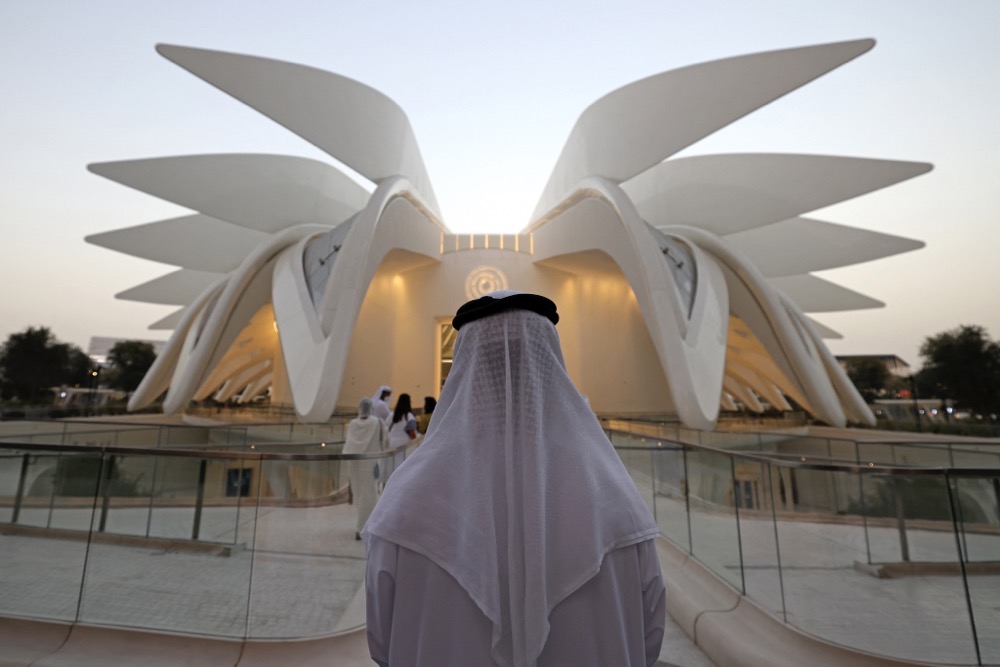
Dubai Expo closes
In late March, Expo 2020 Dubai drew to a close. Delayed by a year owing to the COVID-19 pandemic, it was the first World Expo held in the Middle East and the first where each participating nation — 192 in total — had its own pavilion, making it the most inclusive ever. Spread across three thematic districts based on the sub-themes of opportunity, mobility and sustainability, the exhibition recorded 22.93 million visits as of March 29. Saudi Arabia’s pavilion won multiple awards, setting it in good stead to host the 2030 expo.
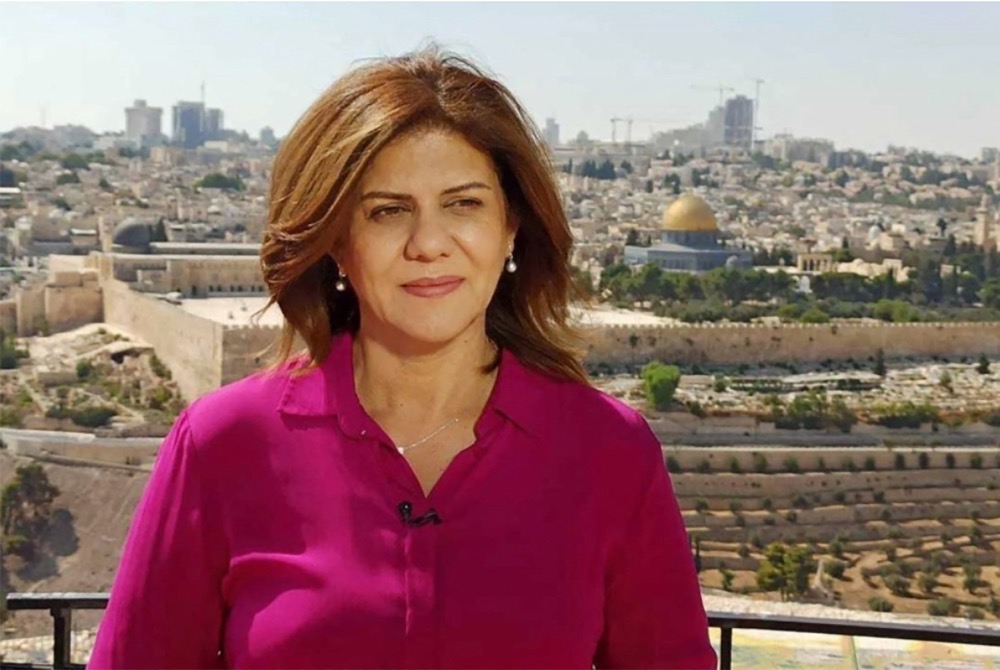
Abu Akleh shooting
Shireen Abu Akleh, a veteran Palestinian American journalist, was killed on May 11 while reporting on an Israeli army raid in the occupied West Bank, sparking global outcry. Abu Akleh was wearing a bulletproof vest marked “press” and a blue helmet when she was shot in the head in the Jenin refugee camp, a flashpoint in the Israeli-Palestinian conflict. The Israeli army conceded on September 5 that one of its soldiers had likely shot Abu Akleh after mistaking her for a militant. There are now calls for a US-led investigation.
Lebanon political deadlock
Lebanon has had a caretaker government since elections in May, despite warnings from creditors that reforms are needed to clear the way for billions of dollars in emergency loans. The World Bank has dubbed Lebanon’s economic crisis one of the worst in modern history. Parliament has repeatedly failed to elect a successor to former president Michel Aoun. Lawmakers are split between supporters of the Iran-backed Hezbollah militia and its opponents, neither of whom command a clear majority.
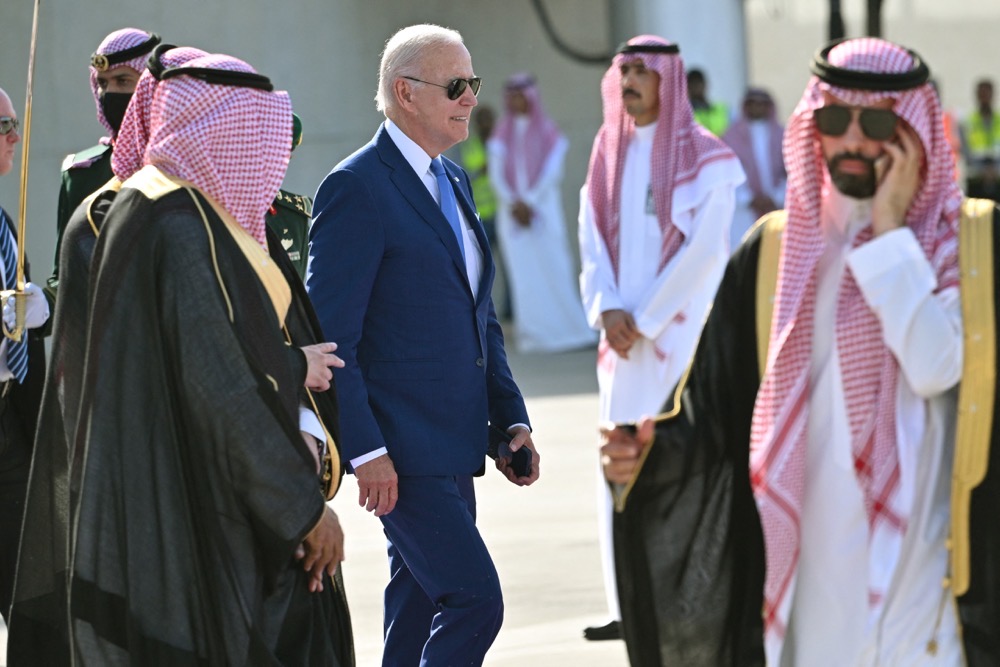
Biden’s Middle East tour
In July, US President Joe Biden traveled to the Middle East to address high oil prices and to encourage further steps towards normalization between Israel and the Arab states. Biden spent two days in Jerusalem for talks with Israeli leaders before meeting Palestinian President Mahmoud Abbas in Bethlehem. Afterward, he took a direct flight from Israel to Jeddah for talks with Saudi officials and Gulf allies. The two sides struck deals covering defense, energy and climate, space exploration, supply chains, travel and business visas, sports, technology and health, as well as an agreement to work toward peace in Yemen.
Al-Qaeda chief killed
Ahead of the US withdrawal from Afganistan last year, the Taliban pledged it would not harbor terrorists as it had prior to the 9/11 attacks on the US. However, the US accused the Taliban of violating its commitment after Al-Qaeda leader Ayman Al-Zawahiri was discovered hiding out in Kabul. In August, Al-Zawahiri was killed in a US drone strike on the Afghan capital.

Iranian drones strike Ukraine
In September, Iranian-made kamikaze drones made their combat debut in Ukraine in the service of the Russian military. Iranian drones supplied to Tehran’s regional proxies have been used to devastating effect against civilian infrastructure in the Gulf and wider Middle East. Given recent Russian setbacks on the battlefield, the new weaponry does not appear to have turned the tide in Ukraine.
FSO Safer
In September, the UN announced it had raised the $75 million required to salvage the stricken FSO Safer off the coast of Yemen to avert a disastrous Red Sea oil spill and potential $20 billion cleanup. The decaying 45-year-old tanker, long used as a floating storage platform and now abandoned off the Houthi-held Yemeni port of Hodeidah, has not been serviced since Yemen plunged into civil war more than seven years ago.
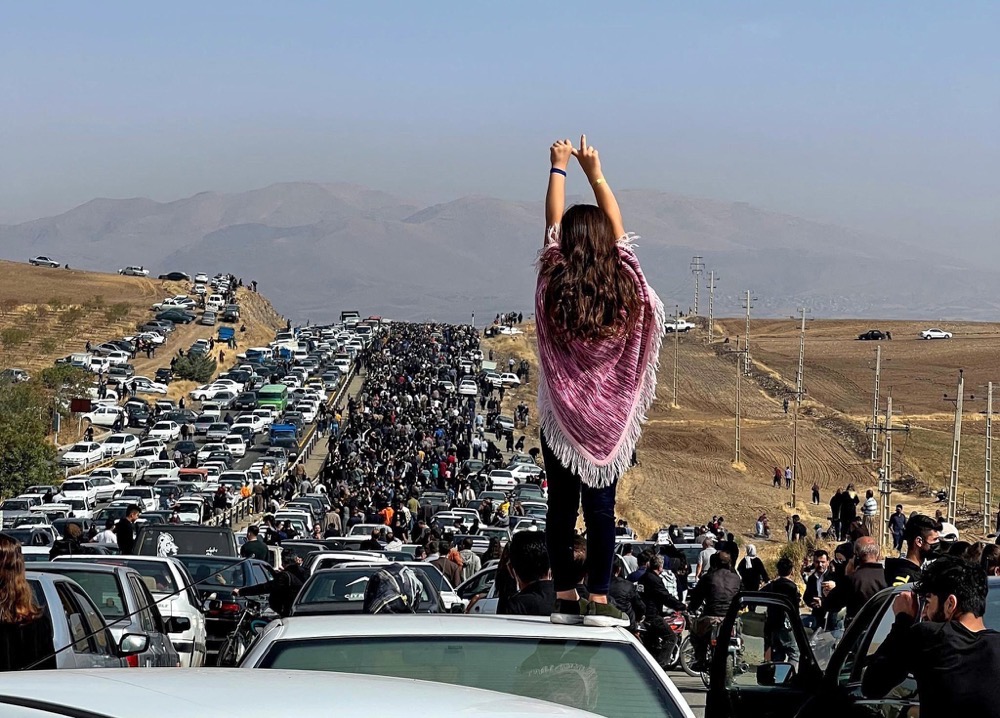
Iran protests
On Sept. 13, Mahsa Amini, a 22-year-old Iranian woman, was arrested in Tehran for violating the Islamic Republic’s strict dress code for women. In the custody of the regime’s notorious morality police, she suffered a catastrophic head injury and, after three days in a coma, died in hospital. Her death triggered nationwide protests, with women openly shunning the hijabs and cutting their hair in public as a gesture of defiance. After a brutal police crackdown, the protesters broadened their demands to the outright removal of the clerical regime. The protests are ongoing.
Iraq’s new government
In October, Iraq’s parliament approved the government of Prime Minister Mohamed Shia Al-Sudani after more than a year of political paralysis. Al-Sudani now faces the gargantuan task of delivering on pledges to fight corruption and offer jobs to the country’s disaffected youth. But oil-rich Iraq has for years suffered rampant corruption preventing the adequate distribution of funds, and analysts predict no imminent end to the country’s protracted crises.
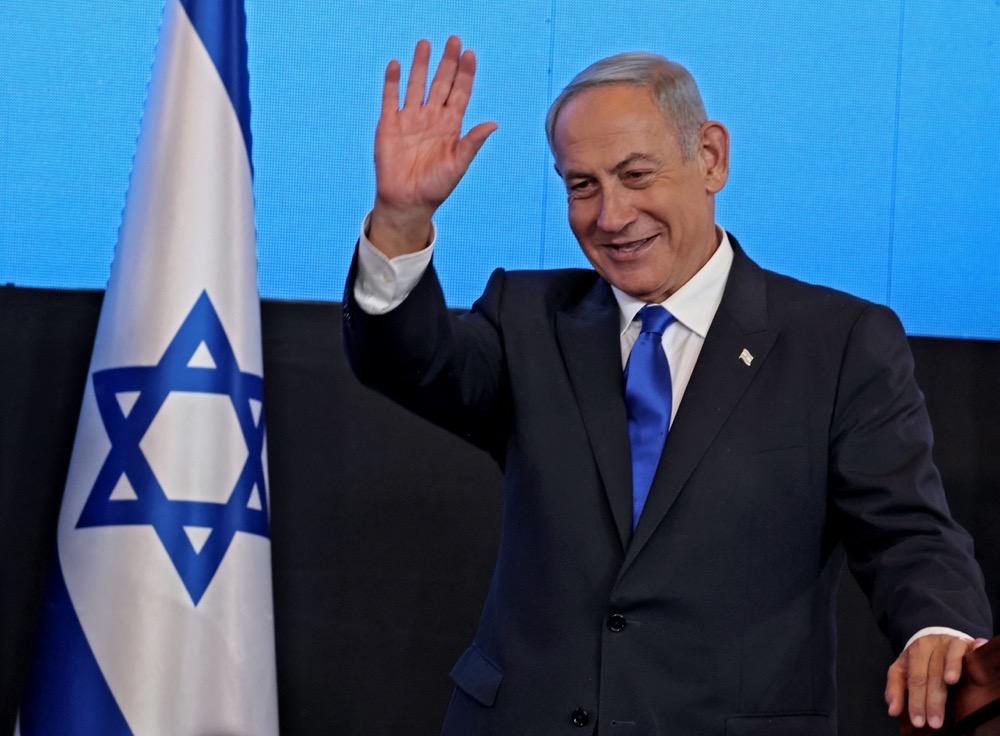
Netanyahu returns
Israel’s veteran politician and former prime minister Benjamin Netanyahu secured a mandate on Nov. 1 to form a new government, paving the way for his comeback at the helm of what is expected to be the most right-wing administration in the country’s history. After a period of unprecedented political gridlock tested the electorate with five votes in less than four years, November’s election gave Netanyahu and his far-right allies a clear majority in the 120-seat parliament.
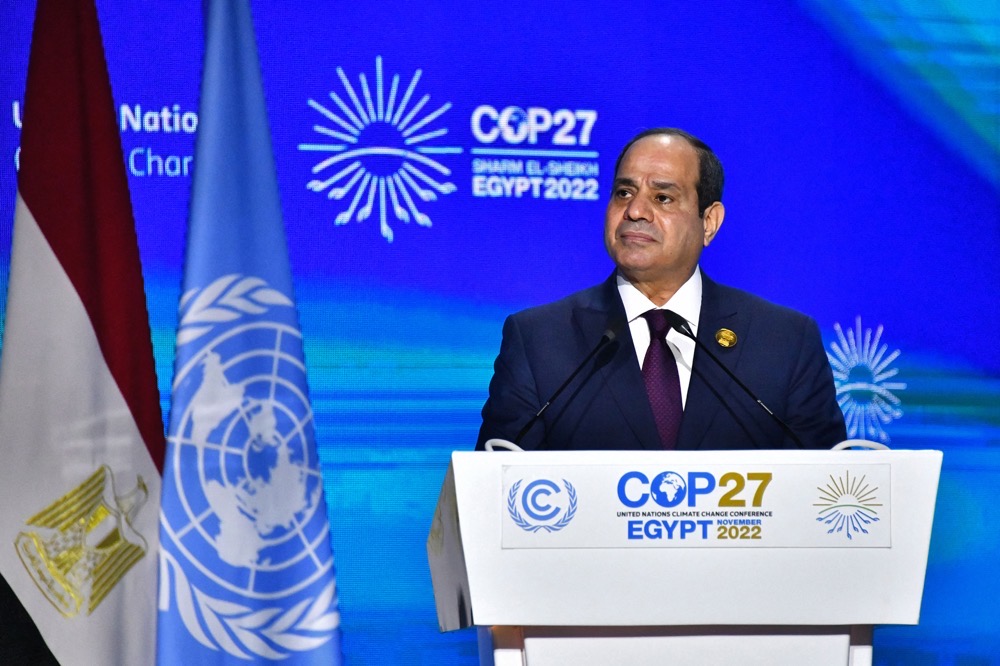
COP27 Egypt
The UN Climate Change Conference — COP27 — took place in Egypt’s Red Sea resort of Sharm El-Sheikh in November, marking the first such summit to take place in the Middle East. Among the most significant takeaways from the conference was a breakthrough agreement to provide “loss and damage” funding for vulnerable countries hit hard by climate disasters. Alongside the summit, Saudi Arabia hosted the Saudi Green and Middle East Green initiatives, aimed at promoting afforestation, conservation and emissions reduction across the region. COP28 is due to take place next year in the UAE.

Qatar World Cup
The year concluded with the greatest sporting spectacle on Earth. In another first for the Middle East, Qatar hosted the 2022 football World Cup. The standout performance came from Morocco, which progressed further in the tournament than any Arab or African side in history. Among the highlights of the tournament was Saudi Arabia’s shock 2-1 win over Argentina and one of the greatest World Cup finals of all time. Argentina beat France 4-2 on penalties to win their third World Cup title. Saudi Arabia is reported to be considering a bid to host the World Cup along with Egypt and Greece in 2030.















